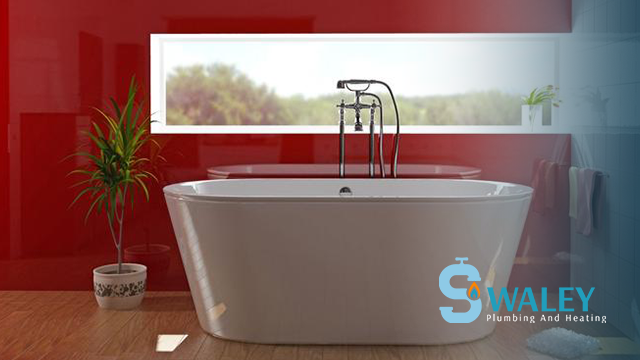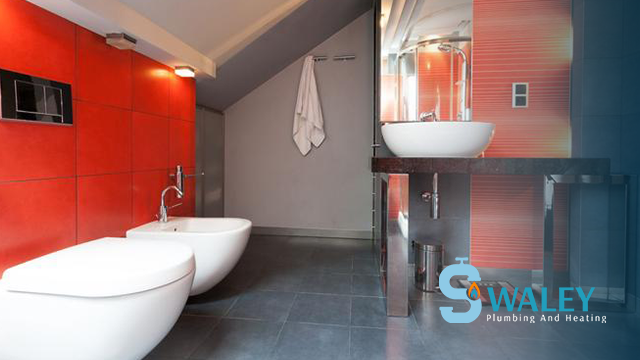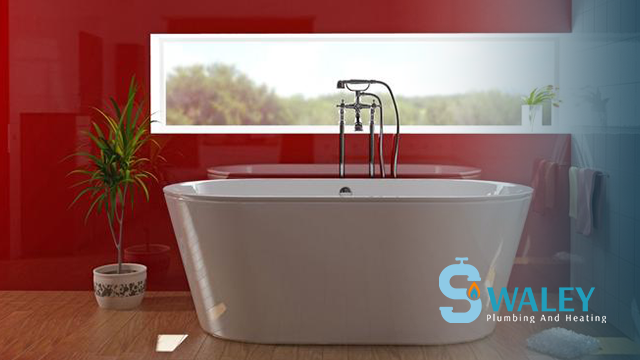Radiator Repairs: Keep Your Home Warm and Cosy All Year Round
Is there anything more comforting than stepping into a warm and toasty home on a chilly day? Your home’s heating system, particularly your radiators, plays a crucial role in creating that comfortable haven. However, just like any other part of your home, radiators can encounter issues that disrupt their performance. In this article, we’ll explore the world of radiator repairs, helping you understand common problems, the importance of timely fixes, and how to maintain a warm and cosy home throughout the year.
Introduction
Imagine this: it’s a frosty morning, and you’re shivering while trying to make breakfast. Your radiator, once a reliable source of warmth, is now emitting cold spots. You’re not alone – many homeowners face similar problems. This article is your guide to understanding and tackling radiator issues, ensuring your home remains comfortable regardless of the weather.
Understanding Common Radiator Issues
Radiators are more than just metal devices hanging on your walls – they’re the heart of your home’s heating system. When they encounter problems, it’s essential to identify the issue and its root causes.
Common Radiator Problems
Cold Spots on Radiators
Have you noticed that your radiator isn’t heating up uniformly? Cold spots can disrupt the warmth flow in your home, making certain areas unbearably chilly. These cold spots might indicate trapped air or mineral build-up, both of which can be resolved with proper maintenance.
Leaking Radiators and Puddles
Discovering puddles around your radiators is concerning. Leaks not only waste water but also hint at corrosion issues within your system. Prompt action is necessary to prevent further damage and ensure a long-lasting heating solution.
Banging or Whistling Noises
If your radiators suddenly start producing unsettling noises, it’s not a haunted house – it’s likely air trapped within the system. The expansion and contraction of air pockets can create these disruptive sounds, affecting both your peace of mind and the efficiency of your heating.
Uneven Heating Throughout the House
Is your living room feeling like a sauna while your bedroom resembles an igloo? Uneven heating can cause discomfort and raise your energy bills. Various factors, including blocked valves and poor water circulation, can contribute to this issue.
Causes of Radiator Issues
Air Trapped in the System
Air pockets can accumulate within your heating system over time, preventing hot water from circulating effectively. This trapped air reduces the overall efficiency of your radiators, leading to uneven heating.
Corrosion and Rust Build-up
Internal corrosion caused by the interaction of water, metal, and oxygen can weaken your radiator’s structure and cause leaks. Rust build-up can also clog pipes and valves, hindering proper functioning.
Faulty Thermostatic Radiator Valves (TRVs)
TRVs play a vital role in regulating the temperature of individual radiators. A malfunctioning TRV can lead to temperature inconsistencies and inefficient heating.
Water Quality and Limescale Deposits
Hard water areas are prone to limescale deposits, which can accumulate in your radiator’s pipes and reduce heat transfer efficiency. Poor water quality can also accelerate corrosion, leading to leaks.
The Importance of Timely Radiator Repairs
Don’t underestimate the impact of radiator issues on your home’s comfort, energy bills, and overall well-being. Addressing problems promptly can save you both money and headaches in the long run.
Efficiency and Energy Savings
The efficiency of your heating system directly affects your energy bills. Radiator problems can lead to wastage of energy as your boiler works overtime to compensate for the reduced heat output. By resolving issues, you’ll not only enjoy a cosier home but also notice a dip in your utility expenses.
Home Comfort and Health
Consistent heating isn’t just about comfort; it’s about your health too. Cold indoor temperatures can lead to health problems, especially in vulnerable individuals. Additionally, dampness caused by leaks or uneven heating can create an environment conducive to mould growth, which poses health risks.
Prolonging Radiator Lifespan
Radiators aren’t cheap investments, and the prospect of replacements can be daunting. Regular maintenance and timely repairs can extend the lifespan of your radiators, sparing you the expense of premature replacements.
DIY vs. Professional Radiator Repairs
Before diving into repairs, it’s essential to determine whether you should take the DIY route or seek professional assistance.
DIY Radiator Repairs
Basic Tools Required
To perform simple radiator maintenance, you’ll need a few tools like a radiator key, a cloth, and a wrench. These tools are essential for tasks like bleeding your radiators.
Step-by-Step Guide to Bleeding Radiators
Bleeding your radiators involves releasing trapped air, which improves heating efficiency. This step-by-step guide will walk you through the process and ensure you do it correctly.
Clearing Blocked TRVs
If you’re experiencing inconsistent heating, blocked thermostatic radiator valves (TRVs) might be the culprit. Learn how to identify and clear these blockages for better heating performance.
When to Call the Professionals
While DIY repairs are suitable for minor issues, some radiator problems require expert intervention.
Identifying Complex Issues
Certain problems, like extensive corrosion or major leaks, are best left to professionals. Attempting to fix these problems without proper knowledge and tools can worsen the situation.
Importance of Expertise in Ensuring Safety
Working with heating systems involves risks, such as exposure to hot water and potential gas leaks. Professionals are trained to handle these risks and ensure the safety of your home and family.
Professional Maintenance for Long-term Radiator Health
Regular professional maintenance goes beyond fixing immediate issues. Experts can identify potential problems and perform preventive measures, ensuring your radiators remain in top condition.
Preventive Measures to Maintain Radiator Health
Prevention is better than cure, and that holds true for radiator maintenance as well. Implement these measures to keep your radiators running smoothly.
Regular Maintenance Tasks
Seasonal System Checks
Regularly inspect your heating system, especially before the colder months, to catch any issues early and avoid surprises when you need warmth the most.
Cleaning and Dusting Radiators
Dust and debris can accumulate on your radiators, hindering heat distribution. Regular cleaning can prevent this build-up and maintain optimal efficiency.
Monitoring Pressure and Water Quality
Keep an eye on your boiler’s pressure gauge and water quality. Low pressure or poor water quality can lead to radiator problems.
Water Quality Management
Importance of Using Inhibitors
Inhibitors are additives that prevent corrosion and limescale build-up within your heating system. Adding them to your system can significantly prolong the life of your radiators.
Addressing Limescale Build-up
If you live in a hard water area, limescale deposits are a common concern. Learn how to address and prevent limescale buildup to maintain efficient heating.
Finding the Right Radiator Repair Services
For complex issues or when DIY efforts fall short, it’s time to enlist the help of professionals. Here’s how to find the right radiator repair service for your needs.
Researching Local Service Providers
Reading Reviews and Testimonials
Online reviews and testimonials provide insights into the quality of service offered by different companies. Look for companies with positive feedback and a history of satisfied customers.
Checking Credentials and Experience
Ensure that the service provider is qualified and experienced in handling radiator repairs. Verified certifications and a strong track record can help you make an informed decision.
Getting Cost Estimates
Requesting In-Person or Remote Assessments
Many companies offer free assessments to gauge the extent of your radiator problems. Whether in-person or remote, these assessments help you understand the issue better.
Understanding the Pricing Structure
Before agreeing to any repairs, make sure you understand the pricing structure. Transparent pricing prevents unwelcome surprises when the bill arrives.
Comparing Multiple Quotes
Don’t settle for the first quote you receive. Contact multiple service providers, compare their quotes, and consider their offerings before making a decision.
Evaluating Warranty and Customer Support
A warranty on repairs and good customer support can provide peace of mind. Choose a service provider that stands behind their work and is responsive to customer inquiries.




